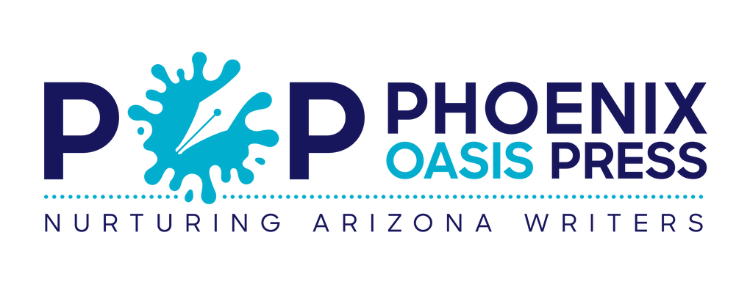Build your support community
Written by Mary Cornelius
Let’s be honest, sharing creative work can feel as personal as appearing naked in public. Which is why it’s important to build yourself a writing support community. I dipped my toe in several pools before I found one that was the perfect temperature for my writing journey. When I did, I jumped in with both feet. Read on for tips and suggestions to help you build your support community.
What Is a Writing Community?
A writing community is a group of people you trust enough to share your work and writing goals with. In turn, you support them across their writer’s journey.
Your writing community might be a text chain with three writers, or a slack group focused on memoir. It could be an in-person event like one of the area’s four Shut Up & Write!® accountability groups, or it could be one of the Red Sands Writers Circle’s online critique groups. Maybe it’s a monthly Zoom chat where you meet with four or five other writers to talk shop and encourage each other. The important thing is that you choose a format that works for your communication style and schedule. Make it something that’s easy for you to commit to.
That Crucial First Step
I joined the Phoenix Metro Shut Up and Write! accountability group during the pandemic. Back then, we met online via Slack and Zoom. I had been writing a simple blog for about two years but felt the itch to do it better, or do more. Although the participants never saw each other face to face, we formed friendships that carried over into an in-person Wednesday morning group at Changing Hands Bookstore in Phoenix.
That first step led to so many wonderful things: three other groups and, years later, Phoenix Oasis Press, an organization focused on developing low and no-cost programs and resources like workshops, retreats, and an anthology, all to assist Arizona writers.
My Writing Community Is ‘Laurie’s People’
‘Laurie’s People’ is the label affixed to a group in my contacts. The label is inspired by this video created and shared by Shut Up & Write® member Laurie Engle where she spoke openly about how important her writing community had been to her growth as an author. “My people,” Laurie says in the video, her tears of joy contagious. I glommed onto it.
The contact label reminds me that I am a member of a group of people who inspire and encourage me in my writing. It reminds me that when I send a message to this group, I am sending a message to my family. No, not my family, because the man I call my husband reads physics and wouldn’t know a good essay from a bad poem. Laurie’s People is my writing family. It’s a group of people who know what I am trying to do; they respond to any idea, suggestion, or frustration with insight, humor, and compassion. And I do the same for them.
The Value of a Writing Community
As many of you know, writing can feel like a solitary sport. But players in the creative arts – introverts, extroverts, and everyone in-between – need their people. A writing community can help you feel less alone, and also help you:
Stay on task and accountable to your goals
Think outside the box or get unstuck
Connect with people living the writer life
Grow as a writer through feedback
Find new resources to help you improve
Size Doesn’t Matter
Your community can be a handful of people, a baker’s dozen, or hundreds of voices in an online space. The size of your community isn’t important. What’s important is that it is filled with other writers and supporters who you feel comfortable sharing with, taking feedback from, and learning with.
You Can Have Multiple Communities
If you’re a science fiction writer who also dabbles in poetry but struggles with accountability, you likely have multiple writing communities. This way, you can ask the right people to help you. Another poet may not be the most ideal person to ask about wormholes and dystopias, while a science fiction writer may not be the best at giving you feedback on your haiku. Having said that, don’t discount the value that someone from another genre can bring to your work. If you’re traveling the self-publishing path, you might likely have a whole community of people who know all-the-things about that.
Support Others The Way You Want To Be Supported
A writing community relies on interactions among all its members. If you want to feel supported, you also need to support others. That’s part of being family. As you try out different groups, stay mindful of how often you are giving support to others in that group. They are likely relying on your support just as much as you are on theirs.
Every Writer Deserves A Community
As much as I enjoy seeing my work published, most of what I put down will never be read by anyone other than myself, and what is read by others results in no monetary compensation. In a consumer society, many would consider that a failure. My community of supporters helps me stay balanced when I am torn between the soul’s drive for creation and the judgment of society and self. They help affirm that my definition of success—blogging as a way of using words in the clearest way possible to understand what I think—is enough simply because that is what I want it to be.
Your Community Challenge: Take The Step
Here's my challenge for you, dear reader. Head to the internet and search for writing groups in your area. Or reach out to someone within your writing community whom you value in terms of their knowledge, skills, and writing. Sign up for one meeting, or schedule coffee with that person. Then hold yourself accountable to see it through. A whole community of support is waiting to cheer you on from the sidelines, whatever your writing goals might be.
ABOUT MARY CORNELIUS
Mary and her husband share their home with their older daughter and her two teenage boys in Peoria, AZ. Mary blogs about house sharing, retirement, and aging, and enjoys playing the piano in a local hospital lobby. She divides her time between Arizona, Chicago, and other parts of the world. Follow her at corneliusblogs.com.

